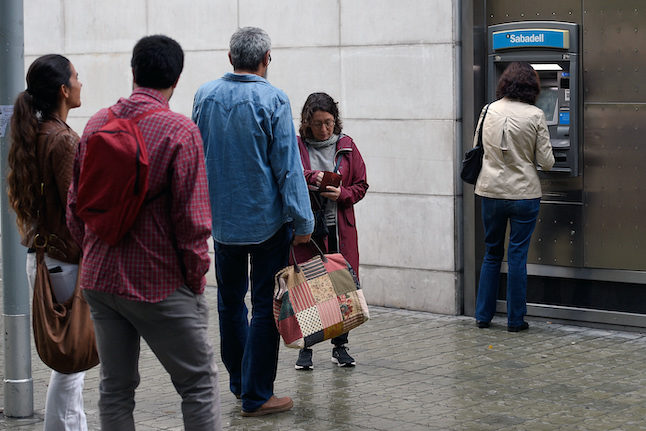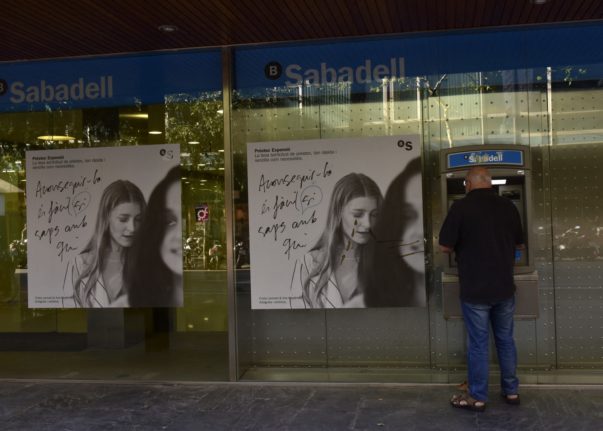According to EU law, banks must offer a “basic account” for essential operations such as depositing and withdrawing money, making transfers and receiving salaries.
The EU created this “basic account” with the aim of avoiding financial exclusion and providing everyone residing in the bloc with a current account, even if they hardly earn any money or don’t have a fixed address.
READ ALSO: What’s the maximum amount you should have in a current bank account in Spain?
What are these basic accounts?
They allow you to carry out up to 120 operations per year and have a debit card, paying only a commission of €3 per month or €36 per year to use it.
The Bank of Spain along with consumer associations are encouraging banks in Spain to make these types of accounts more well-known to their customers.
READ ALSO: What to be aware of before opening a shared bank account in Spain
Who are these basic accounts for?
The accounts are ideal for those who have minimal incomes, as well as those who are not comfortable with technology such as using computers, tablets or smartphones as they don’t require you to use any apps or carry out any extra operations online.
They are also good for vulnerable consumers, due to the fact that banks must agree to give you the account free of charge for two years, extendable two by two, provided you demonstrate that you continue to be so.
You will be considered vulnerable if:
- You are not part of a family unit and you do not earn more than twice the amount of the IPREM. For 2024, this will be €14,400 per year.
- Or, if you are part of a family unit of fewer than four members and you earn less than 2.5 times the IPREM – no more than €18,000 in 2024.
- And if none of the members of the family own property, except for the main residence, or own a company.
Can banks refuse to give me a basic account?
Not really, no. Banks are obliged by law to be able to provide these low-cost accounts and can’t refuse you unless they find out that you are using it to launder money or threaten national security.
READ ALSO: The Spanish bank accounts you can open with just a NIE number



 Please whitelist us to continue reading.
Please whitelist us to continue reading.
Member comments